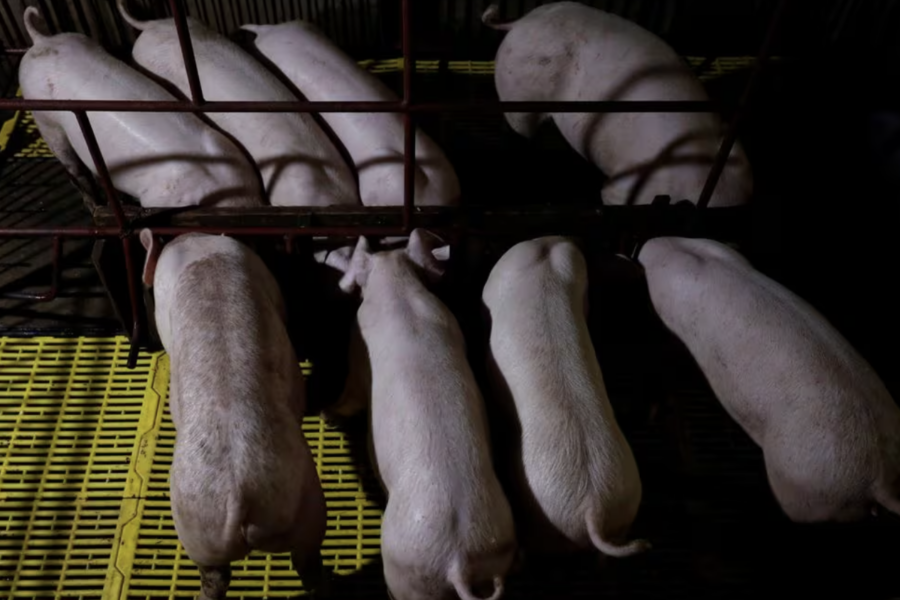The World Organisation for Animal Health (WOAH) is warning that more testing of African swine fever vaccines is needed, triggered by Vietnam’s plans to export doses in coming months to fight a disease that regularly ravages pig farms worldwide.
WOAH says AVAC Vietnam JSC, the producer of one of the two vaccines, has not shared sufficient data with international researchers and bodies.
Gregorio Torres, head of the science department at WOAH, urged countries interested in using AVAC’s vaccines to conduct their own trials before approving it.
In a world first, Vietnam authorised in July two attenuated live-virus vaccines against the disease, which is not deadly to humans but is extremely infectious among pigs and has caused repeated disruptions to the global pork market, which data provider Research and Markets said was worth about $250 billion in 2022.
In October, as AVAC was about to announce deals with importers of its vaccine in the Philippines, Indonesia, Malaysia, India and Myanmar, WOAH warned of risks “from use of sub-standard vaccines”.
Torres said that Vietnam’s announcements led to the warning, but that it was not linked to concerns about specific vaccines.
AVAC says that its vaccine is not dangerous and that widespread use will demonstrate it.
“We have proven our product is safe and effective and we need some time to prove that to all, including those showing concern,” Nguyen Van Diep, AVAC’s chief operating officer, told Reuters.
He did not respond to questions about whether the company was sharing data with international researchers.
Diep said that the vaccine had been safely used in farms in 17 provinces in Vietnam since its approval and that sales were increasing.
Scientists at the U.S. Department of Agriculture (USDA) discovered the AVAC vaccine, which was then developed in Vietnam because the virus is not present in the United States. The agency did not have access to Vietnam’s trials data, a USDA spokesperson told Reuters.
“If somebody puts in the market a vaccine which is suboptimal, it will impact everybody,” Torres said, noting that it is harder to assess vaccines in countries with ongoing epidemics, such as Vietnam, because pigs could be infected by the attenuated virus in the vaccine alongside the wild virus.
Countries are eager for vaccines against African swine fever (ASF), which is incurable and has a high fatality rate, resulting in heavy losses for farms that become infected.
China has also developed several vaccines but none has gotten commercial approval.
AVAC is producing between 2.5 and 5 million doses a month and was planning to export 5 million, pending approval from the countries where the company signed commercial deals, Diep said, noting that a green light from the Philippines might come early next year.
TRADE SANCTIONS?
Torres said the agency was discussing a new global standard for evaluating ASF vaccines, with possible approval coming in May at the WOAH general assembly. The intergovernmental organisation, based in Paris, has 183 member states.
The standard would not be compulsory, as national regulators decide on approvals, but it could lead to trade restrictions against pork-exporting countries that vaccinate pigs with sub-standard shots.
The AVAC vaccine was trialled in the Philippines with 300,000 doses. The Food and Drug Administration of the Philippines, which is in charge of the vaccine approval, did not reply to requests for comment.
Philippines Agriculture Undersecretary Deogracias Victor Savellano told Reuters his country had not approved or purchased the vaccine yet, noting the regulator’s authorisation was critical to food security, as the country faces a national emergency caused by the spread of ASF.
Regulators from India, Indonesia, Myanmar and Malaysia did not respond to requests for comment.
The second approved ASF vaccine, produced by Vietnam’s Navetco Central Veterinary Medicine (VET.HNO) from a USDA platform, had shared positive trial data and is being tested in the Dominican Republic, the USDA said.
